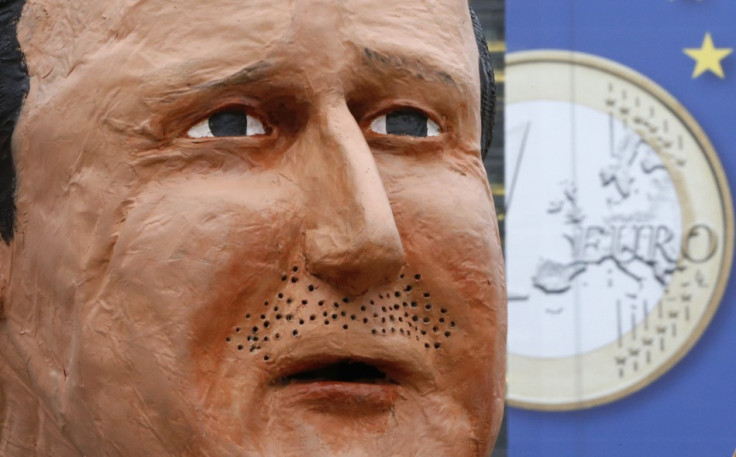EU Budget Summit: A €1 Trillion Farce That Can Afford to Wait

What's the best way to convince the world you're on top of the European economic crisis after seventeen leaders can't reach an agreement on €31.5 billion?
Get ten more leaders into a room and try to cut a €1 trillion budget deal.
Sadly, that's neither the set-up not the punch-line of an economist's joke but rather the grim reality that the twenty-seven leaders of the European Union face when they settle in this evening for what promises to be a gruelling round of negotiations over the bloc's spending commitments for the next seven years.
Laws and sausages are said to be the two things you'd rather see as a finished product as opposed to a work in progress. But surely they both pale into insignificance when compared to the torturous process of line-item justification of a democratically shaky-budget worth at least €970bn.
Last year, for instance, France received half a million euros to study how they could extend the life expectancy of bees. Britain only got €250,00.
The absurdity of some government spending, of course, belies the seriousness of the task at hand, particularly given the backdrop of the myriad failures to reach a consensus on the financial rescue of Greece and the broader Eurozone crisis.
The political stakes are no less significant.
British Prime Minister David Cameron was sent to Brussels with the non-binding demand of his legislators to both return home with a cut to the deal negotiated by Tony Blair seven years ago and the rebate bludgeoned by Margaret Thatcher in the early 1980s.
German Chancellor Angela Merkel, under fire at home for her country's seemingly endless tab for financial rescues of ungrateful European partners, is looking for a similar reduction. Francois Hollande, still stinging from the loss of France's triple-A debt rating and the savaging it took in last week's Economist, needs to both defend the €362bn in EU agricultural subsidies while trying to re-gain economic and political relevance.
Beyond the core players lies a motley collection of self-interests, egos, nationalism and outright delusions that will need to be placated before the final, exhausted communique can be drafted for the grumpy hacks loitering outside.
Vetoes all round
Cameron told parliament he's "quite prepared" to Britain's veto if he's not satisfied with the final proposal.
The trouble is, so is everyone else.
Denmark wants a UK-style rebate and will nix the deal if it doesn't get it. Italy, which is now paying the high portion of its GDP to the collective EU pot, wants a deal that's "good" for its taxpayers. Latvia says the 3.6 percent of GDP it pockets each might *might* be enough to secure its support, but it's not promising anything.
Poland says it won't tolerate any cuts to the €462bn the EU spends on development aid. The Czech Republic's Prime Minister, Petr Necas, doesn't like the current proposal of an €80bn cut to the 2005 agreement but says he won't "threaten" to use his veto, which isn't the same thing as saying he won't "use" his veto.
The unseemly horse-trading that's sure to take place in the pallid meeting rooms will do the Bloc few favours as it continues to argue its relevance some fifty years after its birth.
Set aside the fact that David Cameron - having vetoed plans last year to legislate permanent budget cuts at the national level - will now veto plans that *don't* make permanent budget cuts at the EU level.
And pay no attention to the fact that his Labour party opposition - who stridently call for more domestic government spending to kick-start the UK's recovery - joined Cameron's rebel MPs and voted to seek spending cuts from the EU to kick-start the bloc's recovery.
And that's only part of the embarrassment.
What is beyond shame is that Eurozone leaders can continue to bicker in public about the comparatively tiny amount of money needed to prevent a full-scale economic disaster on Monday yet gather in Brussels to parcel out hundreds of billions of Euros in private on Thursday.
The leadership has more pressing concerns to deal with than a budget negotiation that will simply revert to the previous agreement - in 2014! - if and when a deal isn't reached this weekend. These talks should simply not be taking place and should be delayed until a definitive - and permanent - consensus can be reached on the solving Eurozone crisis.
Greece is dying and the longer its fate is left to the intransigence of its lenders, the greater the chance it will pull ever more Eurozone economies into its debt-sprial vortex. Spain will be next, soon followed by Cyprus. And if there's no firm recovery in the region's fortunes, few would bet against Italy's slide into the pathetic pas-de-deux of Eurozone rescues funded by other bailed-out Eurozone partners. That would put 40 percent of the single currency economies in effective bankruptcy.
It took several days and several triple-digit declines in the Dow at the peak of the financial crisis before US lawmakers finally agreed to the inevitable $700bn Wall Street rescue package they had previously rejected.
In the end the deal actually *did* rescue Wall Street, saved the economy and made the taxpayer a few extra bucks. Crisis, it turned out, was a decidedly-effective consensus builder.
That's what's needed here and if it means pet projects and pork-barrel spending is postponed for a little while, so be it.
Europe's house is on fire and its Leaders need to put the flames out before they argue over how to decorate the walls.
© Copyright IBTimes 2024. All rights reserved.





